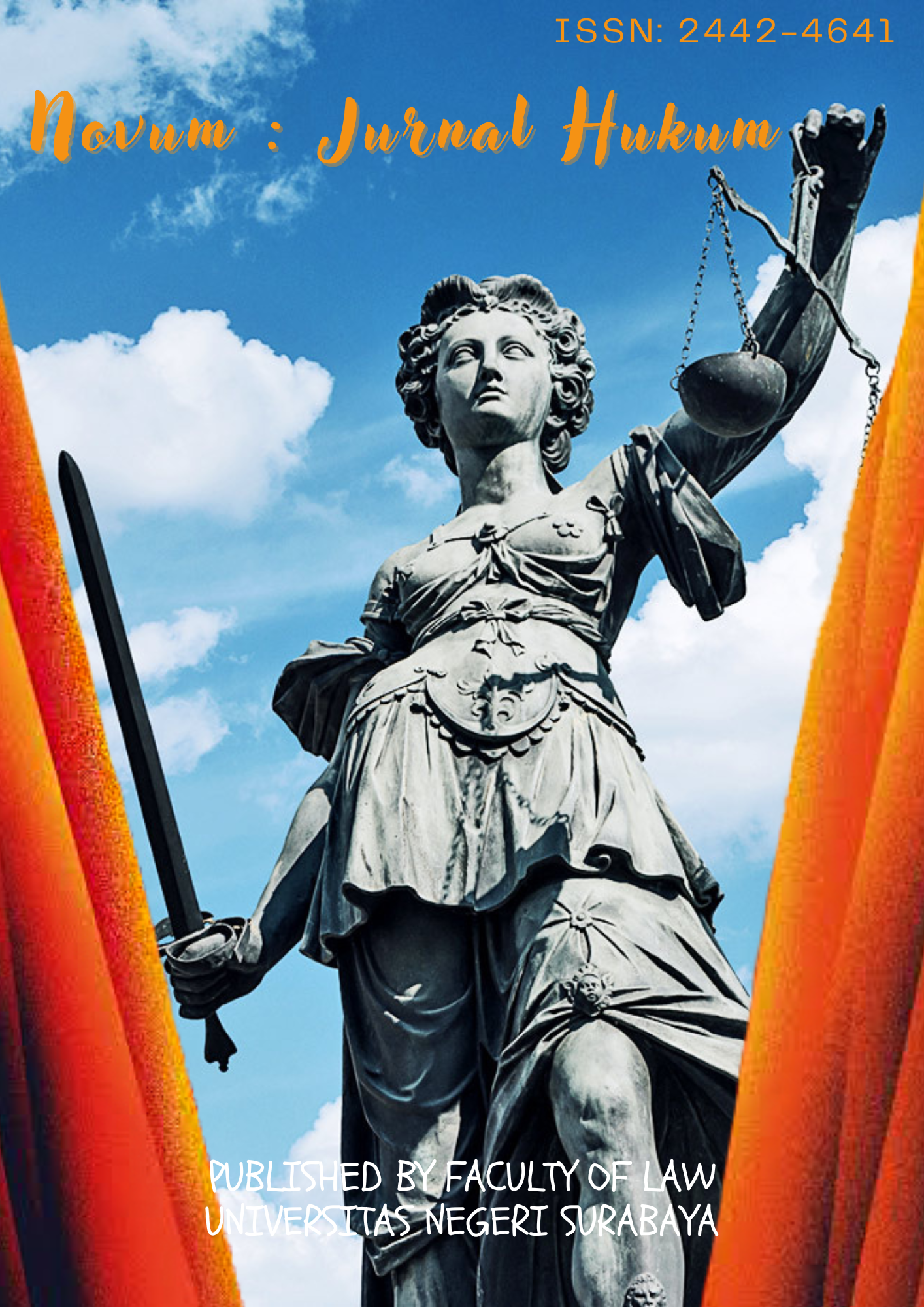The Problematics of Asset Seizure as Compensation for Fulfilling Victims’ Rights in Human Trafficking Crimes
Published 2024-06-01
Copyright (c) 2024 Dadang Eko Nugroho, Gelar Ali Ahmad, S.H.,M.H

This work is licensed under a Creative Commons Attribution-NonCommercial-ShareAlike 4.0 International License.
Abstract
The provision of restitution for victims of human trafficking crimes in Indonesia remains ineffective due to the absence of specific regulations regarding the confiscation of perpetrators’ assets to fulfill restitution obligations. Restitution, as a form of compensation, aims to restore the rights and dignity of victims. Although regulated under Law No. 31 of 2014 and Supreme Court Regulation (PerMa) No. 1 of 2022, its implementation in practice falls short. Victims often do not receive full restitution, and in some cases, no compensation is awarded at all. This issue is evident in three court decisions analyzed in this study: Decision No. 592/Pid.Sus/2021/PN Ckr, No. 168/Pid.Sus/2020/PN.Pml, and No. 48/Pid.Sus/2021/PN.Cbn, where restitution was either unpaid or avoided by perpetrators claiming inability to pay, resulting in subsidiary imprisonment of up to one year. The research uses normative legal methods to highlight a legal vacuum regarding asset seizure for restitution purposes. The findings indicate that the current legal framework lacks enforceable mechanisms to guarantee victims’ rights to restitution. Therefore, this study recommends revising existing laws to include provisions on mandatory asset confiscation from trafficking perpetrators. Additionally, stronger judicial interpretation under Article 1 paragraph (1) of Law No. 48 of 2009 concerning Judicial Power can support the realization of victims’ restitution rights. Strengthening these aspects is crucial to ensuring justice and adequate compensation for victims of human trafficking.

